
Best Ayurvedic Toothpaste for Sensitive Teeth: A Holistic Approach
10 Oct, 2025Tooth sensitivity isn’t just a fleeting issue—it’s a persistent battle for many people. The sharp...
Read more
Tooth sensitivity isn’t just a fleeting issue—it’s a persistent battle for many people. The sharp, sudden pain that strikes while enjoying a hot beverage or indulging in cold treats can make eating and drinking a dreaded experience. While modern toothpaste solutions temporarily numb the discomfort, Ayurveda, the ancient holistic healing science, targets the root cause: Imbalanced Saliva. When sugary or starchy foods linger in the mouth, bacteria like S. mutans (Streptococcus mutans) feed on them, producing acid that erodes enamel and exposes dentin.
Ancient herbs like Mulethi (liquorice root) and Majuphal (oak gall) have been revered in Ayurveda for their ability to neutralise acidic saliva, remineralise enamel, and soothe exposed nerves. When combined with anti-inflammatory powerhouses like Neem and Khadir, these ingredients create a holistic defense against sensitivity. In this blog, we’ll explore how these time-tested ingredients work in harmony to transform oral care—and why choosing a formulation that harnesses their full potential could be the best decision for your dental health.
Tooth sensitivity, or Dantaharsha in Ayurveda, is a sudden, shooting pain triggered by hot, cold, sweet, or sour stimuli. Modern science attributes this to exposed dentin (the main layer of your tooth)—the layer beneath the enamel.
Tooth roots, which are not covered by hard enamel, contain thousands of tiny channels called dentinal tubules that lead to the center of the tooth, known as the pulp. These tubules allow stimuli—such as hot, cold, or sweet foods—to reach the nerve inside the tooth, resulting in the pain you experience.
“Sheetamushnam cha Dashanahsahantesparshanamna cha|
Yasya Tam Dantaharshamtuvyadhimvidyatsamiranam||”
(S. Ni. 16/30)
(If teeth cannot tolerate cold, heat, or touch, it is Dantaharsha caused by Vata imbalance).
Poor diet, harsh oral habits, and lifestyle choices often fuel this imbalance. For instance:
Poor Diet: Excessive intake of acidic foods (citrus, sodas), sugary snacks, or Vata-aggravating items like cold beverages, raw vegetables, and spicy foods. These dry out oral tissues, destabilize saliva pH, and accelerate enamel erosion.
Lifestyle Choices: Smoking (reduces blood flow to gums), alcohol consumption (dries oral tissues), irregular sleep, or chronic stress disturbs gut health leading to problems like GERD, which damages the enamel causing teeth sensitivity. These habits aggravate Vata-Pitta, worsening sensitivity.
According to Acharya Sushruta, the inability to tolerate cold, heat, or touch in the teeth signifies Dantaharsha caused by a Vata imbalance. The root causes include:
Dantaharshopravatamlasheetabhakshaakhshmadwijah
Bavantyaamlaashanaanevasarujaschaeva|
(A.H.Ut.21/12)
“In Dantaharsha, teeth become incapable of tolerating breeze, sour, or cold items, causing pain as though shaking.”
Conventional toothpaste often desensitizes nerve endings with chemicals like potassium nitrate, offering temporary relief without addressing acidic saliva or enamel erosion. But Ayurvedic toothpaste like Maharishi Ayurveda Ayurdent works holistically. Let’s break down how Ayurdent works:
While Ayurvedic toothpaste like Ayurdent addresses sensitivity at its source, pairing it with these practices amplifies results:
Swish lukewarm Dashmool Siddha Tailam (oil infused with Vata-pacifying herbs) for 5 to 10 mins or per individual s capacity. This coats tooth reduces inflammation, and calms nerve irritation.
Use a warm decoction of Panchavalkal (five bark herbs) to soothe sensitivity and heal gums.
Inhale smoke from Vata-balancing herbs like turmeric or neem to strengthen oral tissues.
Favour: Warm, unctuous foods like khichadi, milk, and ghee to pacify Vata.
Avoid: Sour fruits, cold water, dry snacks, and hard-to-chew foods.

Tooth sensitivity is a sign of a deeper imbalance, and Ayurveda offers a holistic approach to heal and prevent it. Choosing the best Ayurvedic toothpaste for sensitive teeth, like Ayurdent, nourishes your teeth with herbal wisdom and works to prevent discomfort caused by tooth sensitivity. Regular use of Ayurvedic toothpaste ensures long-term oral health by soothing nerves, neutralizing acids, and strengthening enamel. With time-tested remedies, Ayurveda offers you a natural and effective solution for a pain-free smile.
From pacifying Vata to healing gums, this best toothpaste for sensitive teeth and gums offers a holistic path to pain-free smiles. Ready to transform your oral care? The answer lies in nature’s pharmacy.
Read this blog: 9 Simple Steps to Remove Hard Plaque from Teeth!
Ayurdent is considered the best Ayurvedic toothpaste for sensitive teeth in India. It contains a blend of herbs like Mulethi, Neem, and Majuphal, which provide long-term relief.
Yes, Ayurvedic toothpaste, such as Ayurdent, neutralizes acidic saliva and remineralizes enamel, helping to reduce sensitivity to cold, hot, and sweet foods.
Ayurvedic toothpaste works holistically by balancing pH levels in saliva, reducing inflammation, and strengthening enamel with natural herbs, whereas conventional toothpaste only temporarily desensitizes nerve endings.
Yes, Ayurvedic medicines like Mulethi and Majuphal are effective in treating tooth sensitivity. They help balance the pH in the mouth and promote enamel remineralization.
Yes, Ayurvedic toothpaste like Ayurdent can be used daily for sensitive teeth. It offers long-term relief and supports overall oral health, promoting gum health and preventing enamel erosion.
Tooth sensitivity isn’t just a fleeting issue—it’s a persistent battle for many people. The sharp...
Read moreModern parents are becoming increasingly conscious about what goes into their children’s daily ro...
Read moreAyurvedic toothpaste often tastes strong, bitter, or spicy due to herbs like neem, clove, babool,...
Read moreWhen it comes to oral health, most people reach for modern fluoride toothpastes. But did you know...
Read moreUnderstanding Ayurvedic Oral Care Imagine a time when dental care was not just about brushing ...
Read moreIntroduction In recent years, there has been a growing awareness around the importance of natu...
Read moreAre you struggling with your oral health because of your eating habits? Are toothaches becoming y...
Read moreAre Yellow Stains, Bleeding Gums, or Relentless Bad Breath Stealing Your Confidence? You brush t...
Read moreHave you ever wondered how Ayurveda, a 5,000-year-old healing system, tackles tooth pain without ...
Read moreDo you brush twice daily, floss religiously, and still battle bad breath, bleeding gums, or tooth...
Read moreImagine biting into a juicy orange, only to see blood streak the fruit. Or noticing bleeding gums...
Read morePicture this: a ritual that cleanses your mouth and harmonises your body, mind, and spirit. In Ay...
Read morePicture this: You're relishing a warm jalebi, only to flinch as a sudden, sharp pain grips your t...
Read moreA dazzling smile isn’t just a confidence booster—it’s a reflection of your overall health. But fo...
Read moreYour teeth are silent warriors—they grind, tear, and shape your food, support your facial structu...
Read moreDid you know that the first toothpaste like substance was created in ancient Egypt, around 5000 B...
Read moreOral health is not just about maintaining a bright smile; it’s a reflection of your body’s intern...
Read moreDo you sometimes feel conscious while speaking to your colleagues or friends because your mouth ...
Read more Guide to Immunity
Guide to Immunity

Tooth sensitivity isn’t just a fleeting issue—it’s a persistent battle for many people. The sharp...
Read more
Modern parents are becoming increasingly conscious about what goes into their children’s daily ro...
Read more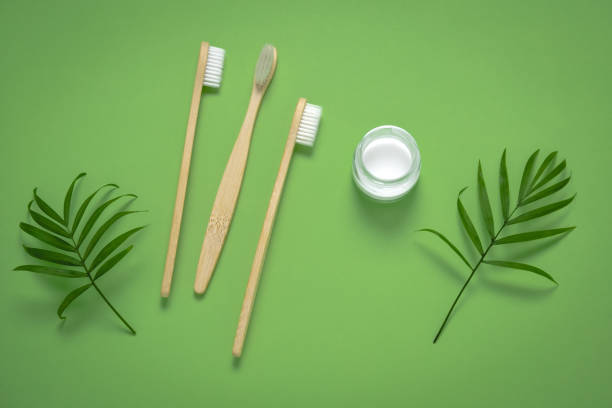
Ayurvedic toothpaste often tastes strong, bitter, or spicy due to herbs like neem, clove, babool,...
Read more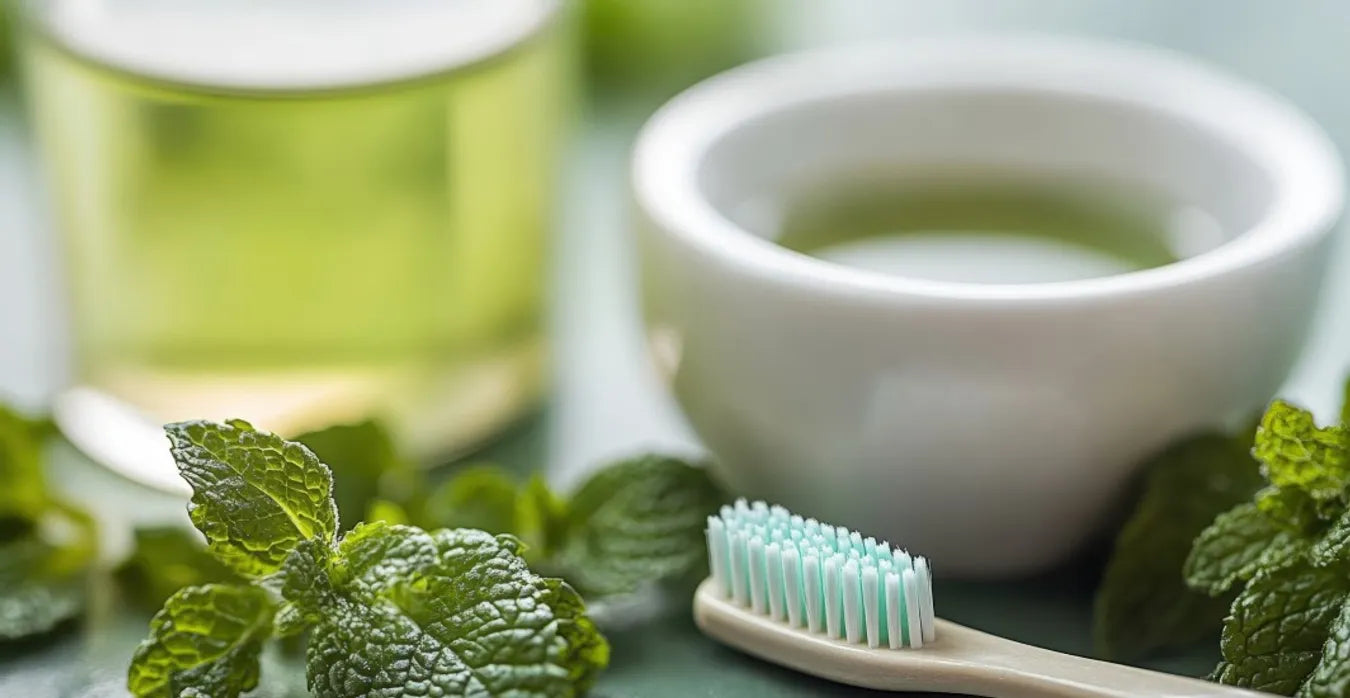
When it comes to oral health, most people reach for modern fluoride toothpastes. But did you know...
Read more
Understanding Ayurvedic Oral Care Imagine a time when dental care was not just about brushing ...
Read more
Introduction In recent years, there has been a growing awareness around the importance of natu...
Read more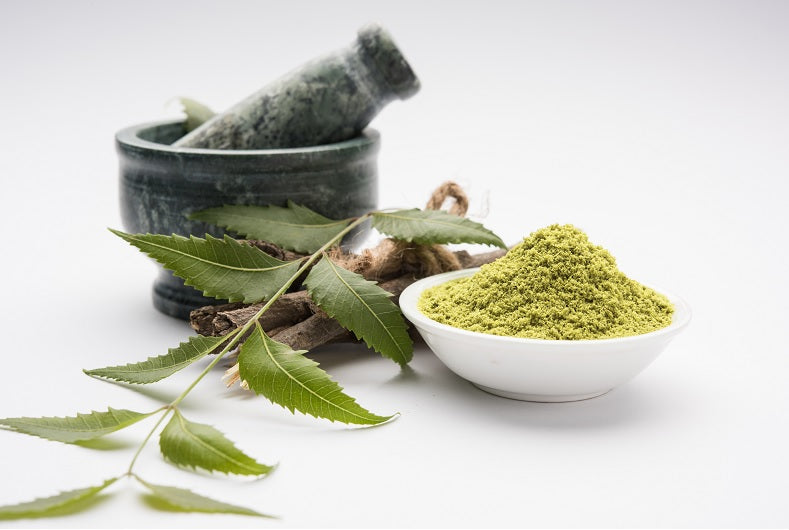
Are you struggling with your oral health because of your eating habits? Are toothaches becoming y...
Read more
Are Yellow Stains, Bleeding Gums, or Relentless Bad Breath Stealing Your Confidence? You brush t...
Read more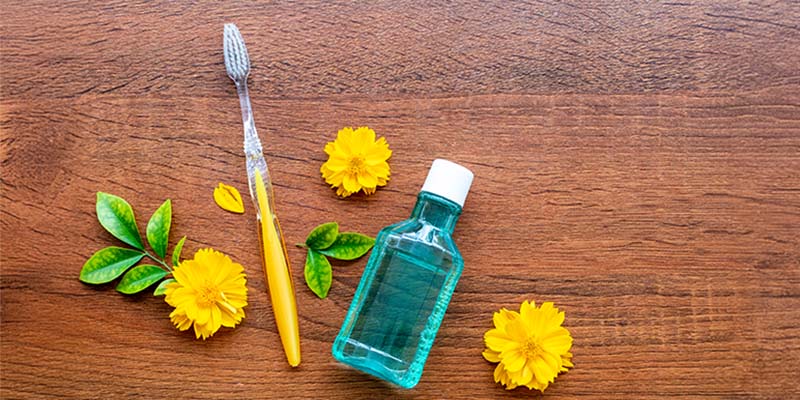
Have you ever wondered how Ayurveda, a 5,000-year-old healing system, tackles tooth pain without ...
Read more
Do you brush twice daily, floss religiously, and still battle bad breath, bleeding gums, or tooth...
Read more
Imagine biting into a juicy orange, only to see blood streak the fruit. Or noticing bleeding gums...
Read more
Picture this: a ritual that cleanses your mouth and harmonises your body, mind, and spirit. In Ay...
Read more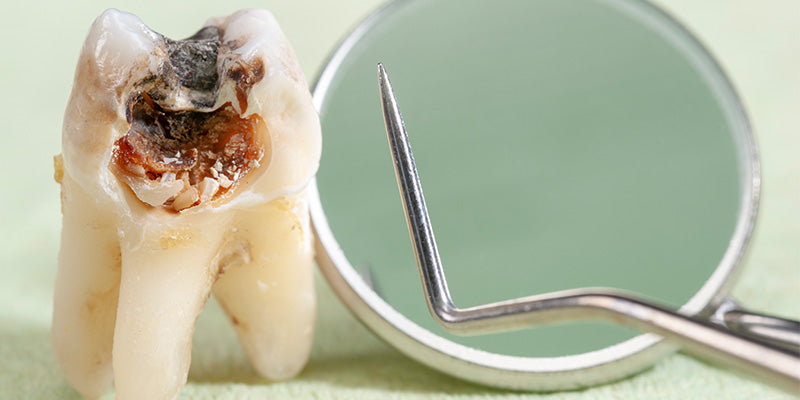
Picture this: You're relishing a warm jalebi, only to flinch as a sudden, sharp pain grips your t...
Read more
A dazzling smile isn’t just a confidence booster—it’s a reflection of your overall health. But fo...
Read more
Your teeth are silent warriors—they grind, tear, and shape your food, support your facial structu...
Read more
Did you know that the first toothpaste like substance was created in ancient Egypt, around 5000 B...
Read more Featured Articles
Featured Articles

Are you struggling with your oral health because of your eating habits? Are toothaches becoming your new normal because you have not been brushing well? Is eating ice cream a big NO, as you have brushed a little too much? A lot of you have been made to believe that your oral issues emanate from what you are doing wrong or not doing the right thing. What if we tell you that you have been approaching this all wrong and trying to solve the problems topically instead of addressing the root cause? Do you ever think about the real reason for these significant dental issues?
Ayurveda helps you focus on the fundamentals and identify the root cause. It is the science of treating the underlying imbalances and correcting the cause in a completely natural and effective way. Among its numerous health benefits, when it comes to oral health, Ayurvedic Toothpaste is a game-changer for preserving strong and healthy teeth. A natural and effective alternative to the chemical-laden equivalents and a beneficial synergy of herbs that help in holistic dental care. Surprising, right!? Well, read on to turn your surprise into a new belief!


नित्यमध्मान तां तांस्तु व्याधिभिश्च विवर्जितः।
रसैश्च दन्तमूलानां रूक्षैराचाम्य विक्रियाम्॥
Meaning: Regularly cleaning your mouth makes your teeth and gums healthy and prevents diseases.
The Charaka Samhita mentions the importance of oral care in overall health. This is more than just information from ancient scriptures; much research has validated the role of a healthy mouth in a healthy body. A 2022 study in Frontiers of Microbiology highlighted this critical link: an imbalance in the oral microbiome causes periodontal disease and promotes cardiovascular disease development.
Wondering how? Saliva is the first fluid that is secreted during digestion. It lubricates the tongue and oral cavity and ensures that the whole digestive tract stays lubricated, along with the chewed food passed down to the stomach. It carries all microbes into your gut and is the most crucial link between oral and overall health
Saliva also contains some antimicrobial proteins and enzymes that keep harmful microorganisms from growing while ensuring the good ones thrive. However, any saliva production or composition imbalance can affect the oral microbiota. This could be due to poor oral hygiene, an unhealthy diet, or systemic health issues.
This imbalance can have dire consequences for oral health, such as dental caries, gum issues, and infections. Moreover, balanced saliva helps lubricate and break down food for easy digestion and ensures that teeth get essential minerals to maintain and repair themselves.

Dantadhaawan is an ancient Ayurvedic oral hygiene practice that involves using herbal twigs, AKA ‘‘Datoon’’, to clean teeth and gums. Commonly used twigs include those from the neem, babool, and liquorice plants. These twigs have antimicrobial properties that help maintain oral hygiene.
According to the Shadrasa (six tastes) in Ayurveda, every herb has a Rasa (dominant taste) that determines its properties and actions.
An ideal toothpaste must contain Katu, Tikta, Kashaya, and Madhura Rasa, each of which positively impacts maintaining the health of our oral cavity.
Let’s uncover the properties of these essential Rasas to know more:
|
Rasa |
Action |
|
Katu (Pungent) |
It deeply cleanses the oral cavity |
|
Tikta (Bitter) |
Antibacterial & antiseptic action |
|
Kashaya (Astringent) |
Provides pain relief |
|
Madhura (Sweet) |
Strengthens the gums & teeth |
You see, an Ayurvedic toothpaste not only cleanses your teeth but also gives Bala (strength) through the properties of the natural Dravyas (herbs) used in it.

It may sound complex, but formulating toothpaste at home is as easy as making a face pack! All you need is 10 grams of dry leaves or powders of neem, mulethi, jamun, and amalaki. Grind or mix them, and your dry toothpaste powder is ready! During every brushing session (preferably morning and evening), mix it with your *Dosha-appropriate adjuvants. Vata *Dosha* can mix sesame oil, Pitta *Dosha* can mix ghee, and Kapha *Dosha* can mix honey/mustard oil, and your quick, healthy toothpaste is ready!
If you’re a busy bee, not interested in DIYs, or find it difficult to source these ingredients, don’t worry! We have Maharishi Ayurveda Ayurdent Toothpaste. It is your one-stop solution to all your oral problems. It’s a unique formulation that works on your saliva and is suitable for all body types, irrespective of the Doshic predominance.
It contains neem for cleansing, triphala for balancing, and meswak & ginger for stimulating saliva. Ayurdent promotes holistic oral health naturally and provides protection from major oral problems like cavities, plaque, bleeding gums, toothache, sensitivity, and bad breath. It contains the goodness of 20 Ayurvedic ingredients and is free from SLS and fluoride. Certified by COSMOS Natural, it stands out for its authenticity compared to other Ayurvedic and herbal toothpaste. This innovative, non-foaming formula is a must-try in the category.
 Recent Blogs
Recent Blogs


As per Ayurveda, no two individuals are alike. Maharishi Ayurveda offers personalised treatment for each individual at all touch-points. Consult our expert Vaidyas to get root cause-based personalised treatment from the comfort of your home
CONSULT VAIDYA
















